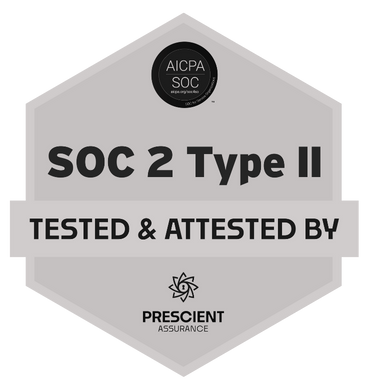President Trump is officially in office, and the estate planning landscape is shifting. The stage is set for new opportunities and challenges—but with the right strategies, advisors can ensure their clients are ready. Let's dive into the latest updates and what they mean for your practice.
The Biden administration left a lasting impression on estate planning. Federal estate tax exemptions reached record highs, hitting $13.61 million per individual ($27.22 million for married couples) in 2024. Advisors leveraged these opportunities to guide clients through substantial wealth transfers, all while navigating uncertainty around proposed tax reforms.
While no major legislative changes were enacted, ongoing discussions about lowering exemptions and removing the step-up in basis created a cautious but proactive environment. Advisors played a critical role in simplifying complex strategies, preparing clients for any shifts on the horizon.
In 2025, the federal estate tax exemption rises again to $13.99 million per individual ($27.98 million for married couples). This elevated threshold provides a narrow window for tax-efficient wealth transfer, but it won't last forever. At the end of 2025, the exemption is set to sunset, dropping to approximately $5 million per individual, adjusted for inflation.
Advisors should act now to help clients take advantage of these exemptions. Strategies like lifetime gifting, irrevocable trusts, and spousal portability elections can lock in today's limits before they're gone.
For 2025, the annual gift tax exclusion has increased to $19,000 per recipient ($38,000 for married couples). This adjustment makes it easier than ever for clients to support their heirs while reducing their taxable estates.
Unlike the broader estate tax exemption, the annual gift tax exclusion is not affected by the 2025 sunset, offering a reliable planning mechanism. Advisors should integrate annual gifting programs into comprehensive estate strategies to align with clients' financial goals.
Healthcare policy often intersects with estate planning, particularly for clients managing long-term care expenses. Medicaid eligibility rules, expanded HSA limits, and potential changes to the Affordable Care Act (ACA) all have significant implications for financial strategies.
By addressing these factors, advisors can provide holistic plans that account for both financial and medical contingencies.
Estate and retirement planning go hand in hand. Recent changes and upcoming adjustments create opportunities to optimize strategies for your clients.
Advisors who integrate these insights into client plans can deliver well-rounded solutions that maximize both retirement income and estate value.
The estate planning landscape is shifting, bringing both challenges and opportunities. Advisors need tools and resources to navigate these changes effectively.
Estate Guru provides an attorney-embedded platform that gives you the confidence to navigate these changes with ease. With attorney expertise built into every document, you can trust that your clients’ plans are accurate, legally compliant, and thoughtfully tailored to their unique needs—no matter how complex.
With 2025’s changes on the horizon, acting now can help clients secure the full range of benefits available. Estate Guru empowers advisors to save time, simplify workflows, and deliver exceptional outcomes for their clients.
President Trump is officially in office, and the estate planning landscape is shifting. The stage is set for new opportunities and challenges—but with the right strategies, advisors can ensure their clients are ready. Let's dive into the latest updates and what they mean for your practice.
The Biden administration left a lasting impression on estate planning. Federal estate tax exemptions reached record highs, hitting $13.61 million per individual ($27.22 million for married couples) in 2024. Advisors leveraged these opportunities to guide clients through substantial wealth transfers, all while navigating uncertainty around proposed tax reforms.
While no major legislative changes were enacted, ongoing discussions about lowering exemptions and removing the step-up in basis created a cautious but proactive environment. Advisors played a critical role in simplifying complex strategies, preparing clients for any shifts on the horizon.
In 2025, the federal estate tax exemption rises again to $13.99 million per individual ($27.98 million for married couples). This elevated threshold provides a narrow window for tax-efficient wealth transfer, but it won't last forever. At the end of 2025, the exemption is set to sunset, dropping to approximately $5 million per individual, adjusted for inflation.
Advisors should act now to help clients take advantage of these exemptions. Strategies like lifetime gifting, irrevocable trusts, and spousal portability elections can lock in today's limits before they're gone.
For 2025, the annual gift tax exclusion has increased to $19,000 per recipient ($38,000 for married couples). This adjustment makes it easier than ever for clients to support their heirs while reducing their taxable estates.
Unlike the broader estate tax exemption, the annual gift tax exclusion is not affected by the 2025 sunset, offering a reliable planning mechanism. Advisors should integrate annual gifting programs into comprehensive estate strategies to align with clients' financial goals.
Healthcare policy often intersects with estate planning, particularly for clients managing long-term care expenses. Medicaid eligibility rules, expanded HSA limits, and potential changes to the Affordable Care Act (ACA) all have significant implications for financial strategies.
By addressing these factors, advisors can provide holistic plans that account for both financial and medical contingencies.
Estate and retirement planning go hand in hand. Recent changes and upcoming adjustments create opportunities to optimize strategies for your clients.
Advisors who integrate these insights into client plans can deliver well-rounded solutions that maximize both retirement income and estate value.
The estate planning landscape is shifting, bringing both challenges and opportunities. Advisors need tools and resources to navigate these changes effectively.
Estate Guru provides an attorney-embedded platform that gives you the confidence to navigate these changes with ease. With attorney expertise built into every document, you can trust that your clients’ plans are accurate, legally compliant, and thoughtfully tailored to their unique needs—no matter how complex.
With 2025’s changes on the horizon, acting now can help clients secure the full range of benefits available. Estate Guru empowers advisors to save time, simplify workflows, and deliver exceptional outcomes for their clients.



